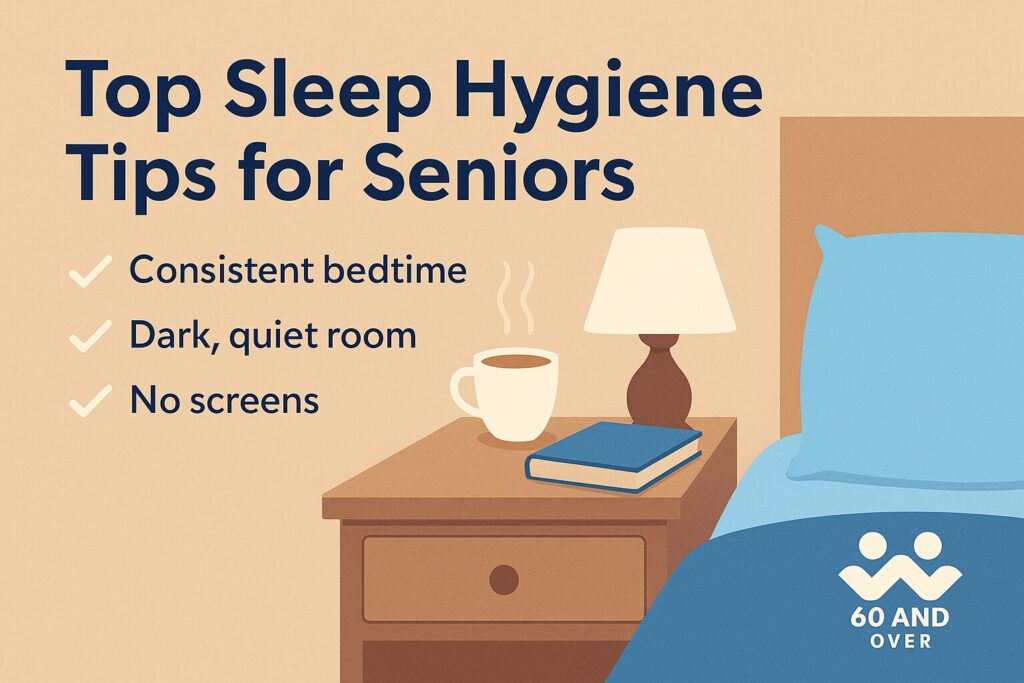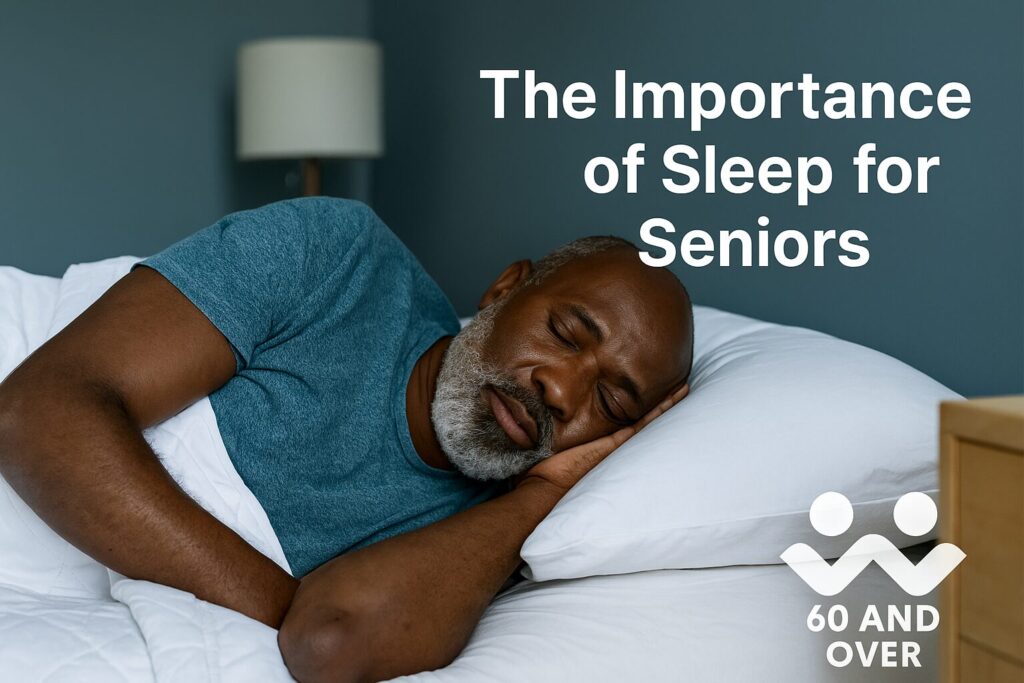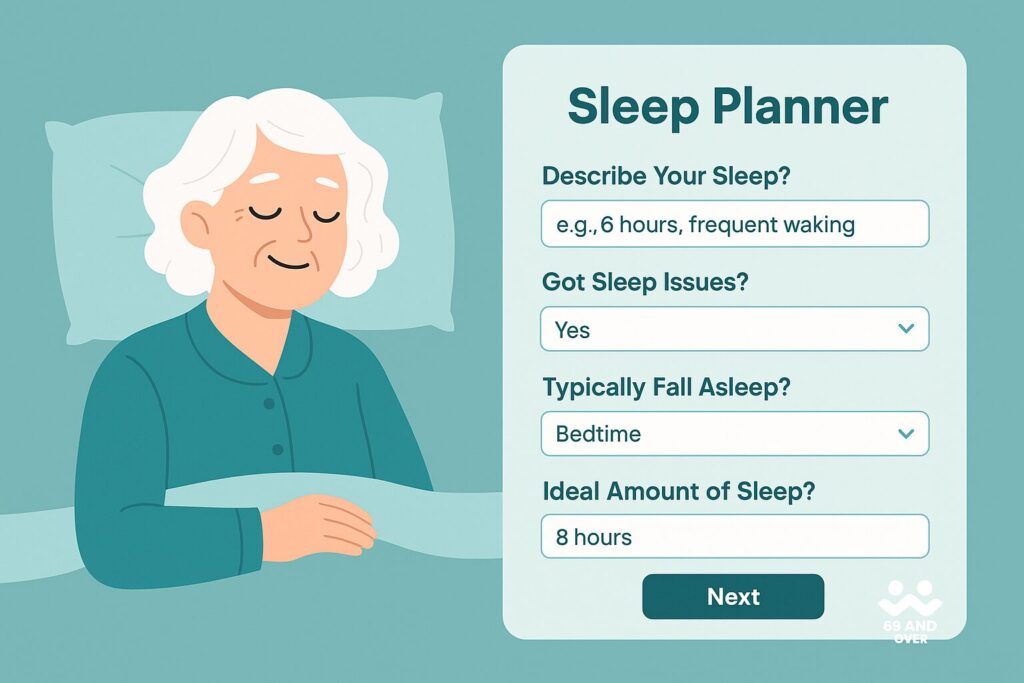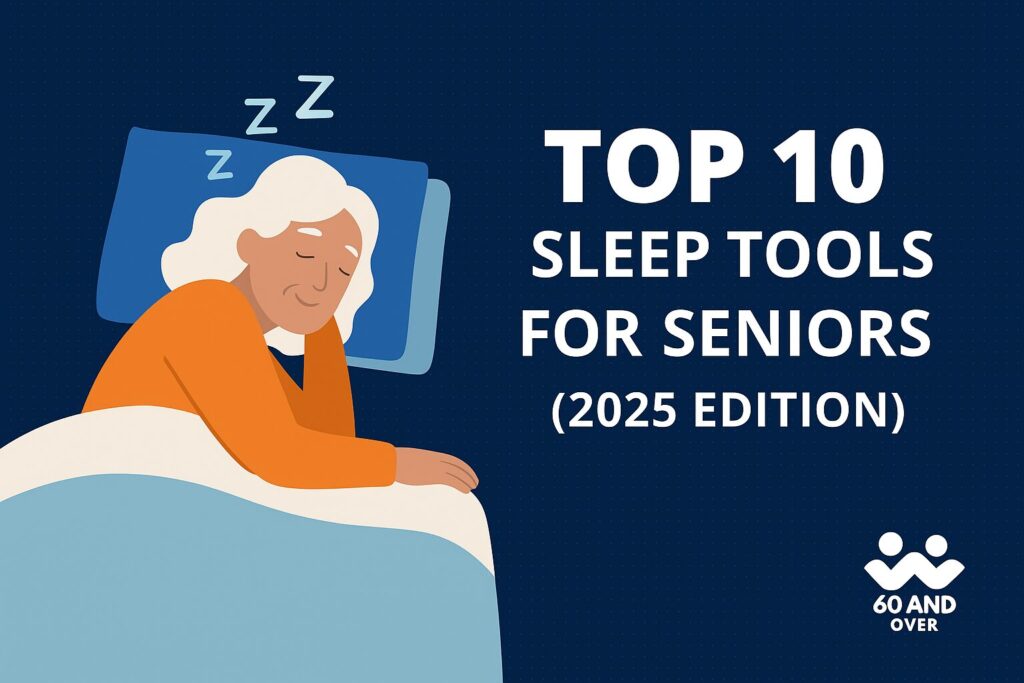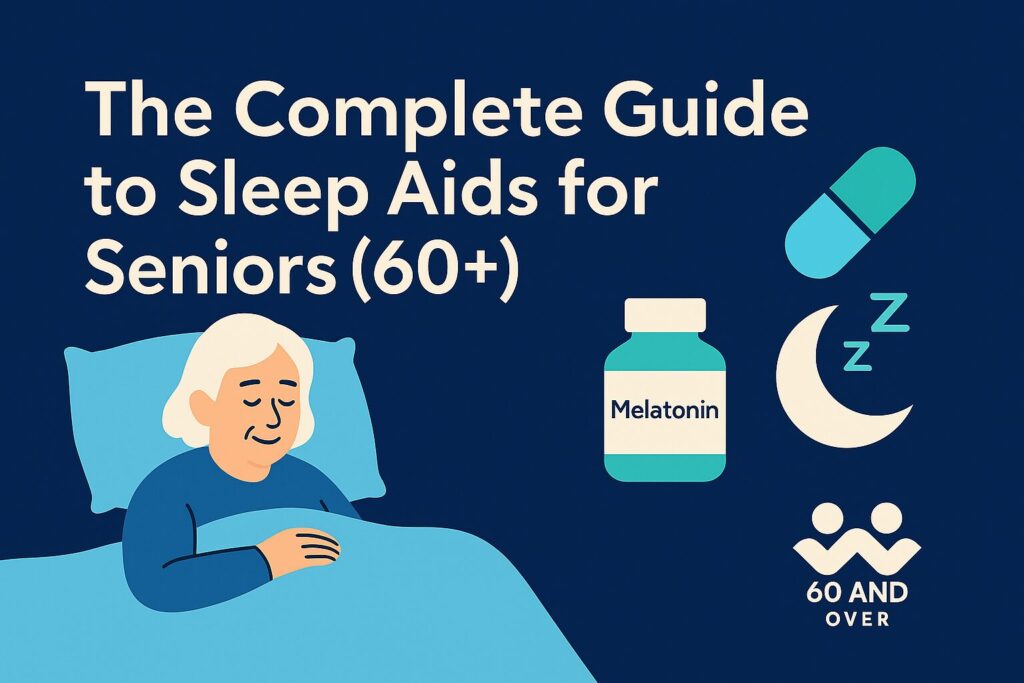Simple Daily Habits to Support Better Rest After 60
A good night’s sleep is one of the most important ingredients for healthy aging. Yet, for many seniors, falling asleep or staying asleep becomes more challenging over time. While supplements and medications can help, the foundation of better sleep usually begins with something much simpler: sleep hygiene.
Sleep hygiene refers to the daily habits, routines, and environmental changes that set the stage for restful, uninterrupted sleep. For adults over 60, improving sleep hygiene is often the safest and most effective way to regain quality rest without relying heavily on medication.
Why Sleep Hygiene Matters After 60
The older we get, natural changes in the body make sleep less deep and more fragmented. The circadian rhythm, which regulates sleep-wake cycles, also shifts — causing many seniors to feel sleepy earlier in the evening and wake up earlier in the morning.
Poor sleep hygiene can make these changes worse. Things like irregular sleep schedules, too much caffeine, or excessive screen time before bed can leave seniors tossing and turning at night. By focusing on healthy sleep habits, older adults can improve both the quality and duration of their sleep.
1. Stick to a Consistent Sleep Schedule
Going to bed and waking up at the same time each day helps regulate the body’s internal clock. For seniors, this consistency makes it easier to fall asleep naturally and wake up feeling refreshed.
- Try to keep the same bedtime, even on weekends.
- Avoid long weekend naps that throw off your rhythm.
- If you wake up too early, resist the urge to stay in bed — instead, start your morning calmly.
2. Create a Calming Bedtime Routine
A nightly wind-down routine signals to the body that it’s time for rest. Gentle, predictable habits can reduce anxiety and prepare the mind for sleep.
- Read a light book or listen to soothing music.
- Practice light stretching, deep breathing, or meditation.
- Enjoy a caffeine-free herbal tea, such as chamomile or lemon balm.
- Dim the lights at least 30 minutes before bedtime.
3. Make the Bedroom Comfortable and Sleep-Friendly
The bedroom environment plays a huge role in sleep quality. Seniors can benefit from small changes that create a calming, restful atmosphere.
- Keep it cool: A room temperature around 65–68°F is often ideal.
- Block out light: Use blackout curtains or a sleep mask.
- Reduce noise: White noise machines or earplugs can help.
- Invest in bedding: A supportive mattress and breathable sheets improve comfort.
4. Be Mindful of Caffeine and Alcohol
Both caffeine and alcohol interfere with sleep — though in different ways.
- Caffeine: Coffee, tea, soda, and even chocolate can keep seniors awake. Limit intake after mid-afternoon.
- Alcohol: While it may make you feel sleepy at first, alcohol disrupts deep sleep and increases nighttime awakenings.
5. Get Natural Light During the Day
Exposure to daylight helps regulate the circadian rhythm. Seniors who spend more time indoors may lose this natural signal.
- Try to get outside for at least 20–30 minutes each morning.
- Open blinds during the day to let in sunlight.
- If natural light is limited, a light therapy box can help mimic daylight.
6. Limit Naps (or Nap Smartly)
Short naps can be refreshing, but long or late-day naps may interfere with nighttime sleep.
- Keep naps under 30 minutes.
- Aim for early afternoon naps rather than evening ones.
- If insomnia is a problem, consider skipping naps altogether.
7. Reduce Evening Screen Time
The blue light from phones, tablets, and TVs can trick the brain into staying alert. For seniors struggling with sleep:
- Turn off screens at least one hour before bedtime.
- Use blue-light filters or “night mode” if screens are unavoidable.
- Replace TV time with listening to music, audiobooks, or conversation.
8. Pair Sleep Hygiene with Gentle Activity
Daily movement supports better sleep by reducing stress and balancing energy levels. Even light activity can make a difference.
- Take short walks during the day.
- Try yoga, tai chi, or gentle stretching in the evening.
- Avoid vigorous exercise right before bed, as it may be stimulating.
When to Seek Extra Help
Good sleep hygiene helps many seniors improve sleep, but sometimes additional support is needed. Talk to a doctor if:
- Sleep problems last more than 3 nights a week for several weeks.
- You wake up gasping for air (possible sleep apnea).
- Sleep problems are linked to anxiety, depression, or chronic pain.
Conclusion
Improving sleep doesn’t always require a pill. By focusing on consistent routines, a sleep-friendly environment, and healthy lifestyle habits, seniors can often enjoy deeper, more restorative rest. Sleep hygiene is a powerful, drug-free tool — and it’s never too late to start building healthier sleep habits.
Article: This blog post is part of our “best sleep aid for seniors” after 60 and natural alternatives”.
FAQ: Sleep Hygiene Tips for Seniors
Q: What is the most important sleep hygiene tip for seniors?
A: Consistency is key. Going to bed and waking up at the same time every day helps regulate the body’s natural rhythm and supports better rest.
Q: Can seniors take naps and still sleep well at night?
A: Yes, but naps should be short (20–30 minutes) and earlier in the day. Long or late naps can make it harder to fall asleep at night.
Q: How does light exposure affect senior sleep?
A: Morning daylight exposure helps reset the circadian rhythm, making it easier to fall asleep at night. Without it, seniors may feel groggy or restless.
Q: Are screens really that bad before bed?
A: Yes. Blue light from screens suppresses melatonin, a hormone that helps regulate sleep. Seniors benefit from turning off screens an hour before bedtime.
Q: When should seniors talk to a doctor about sleep problems?
A: If insomnia lasts for weeks, or if symptoms like loud snoring, gasping for air, or daytime fatigue persist, it’s important to consult a healthcare provider.

